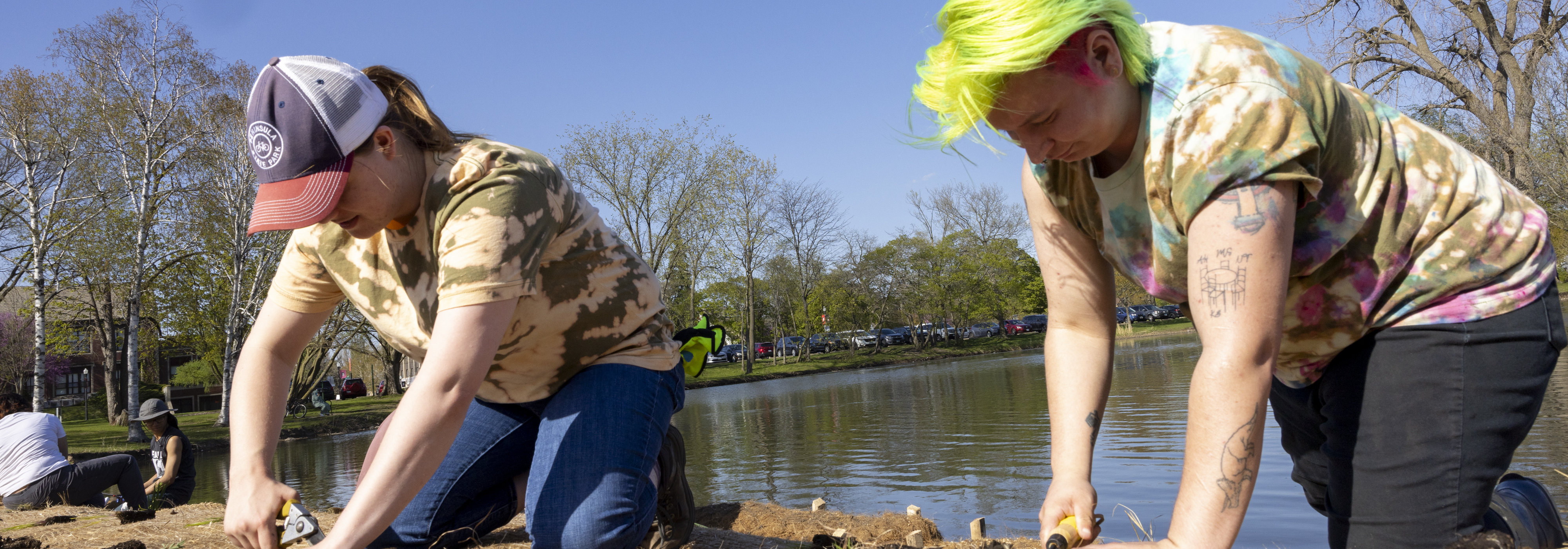- Sustainability at NIU
- Campus Initiatives
- Landscaping and Restoration

Landscaping and Restoration
NIU is committed to managing its grounds in a sustainable manner, including restoring native habitats. Ecological restoration is important for many reasons, including promoting biodiversity, mitigating climate change, and preserving ecosystem services such as clean air and water.
Goals and Actions
NIU’s goals related to land management focus on protecting wildlife and habitats while increasing opportunities for education and research. The university will work to:
- Use landscape management policies/strategies that minimize impact on the environment and meet campus needs while maintaining healthy ecosystems
- Restore native habitat and degraded natural areas and incorporate sustainable landscape designs
- Promote biodiversity on campus, including identifying, assessing and supporting habitats and species to help them thrive
- Increase spaces suitable for restoration- and native-habitat-based research to promote and integrate this work across academic disciplines
- Create campus committees to facilitate and oversee student-led restorations and other landscape management
- Provide opportunities to learn about the benefits of sustainable land management, such as signage at restoration sites and public forums.
East Lagoon Restoration
The East Lagoon is a beloved part of campus. It provides opportunities for relaxation and recreation, as well as hands-on learning about native wetlands. This important natural feature provides benefits like flood control, pollution filtration, storm/wind buffers, carbon sinks (storage) and habitat for local wildlife.
For several years, students, faculty and staff have collaborated with ENCAP, a local environmental consulting/planning firm, to restore lagoon shoreline to native habitat. These student-led projects strive to protect against further erosion, improve water quality, attract wildlife and increase shoreline stability over time.My favorite spot is the lagoon on campus. Currently, we are working on the lagoon as a restoration project. I enjoy working with aquatic and riparian systems the most. I enjoy the environment and I work with it every week.